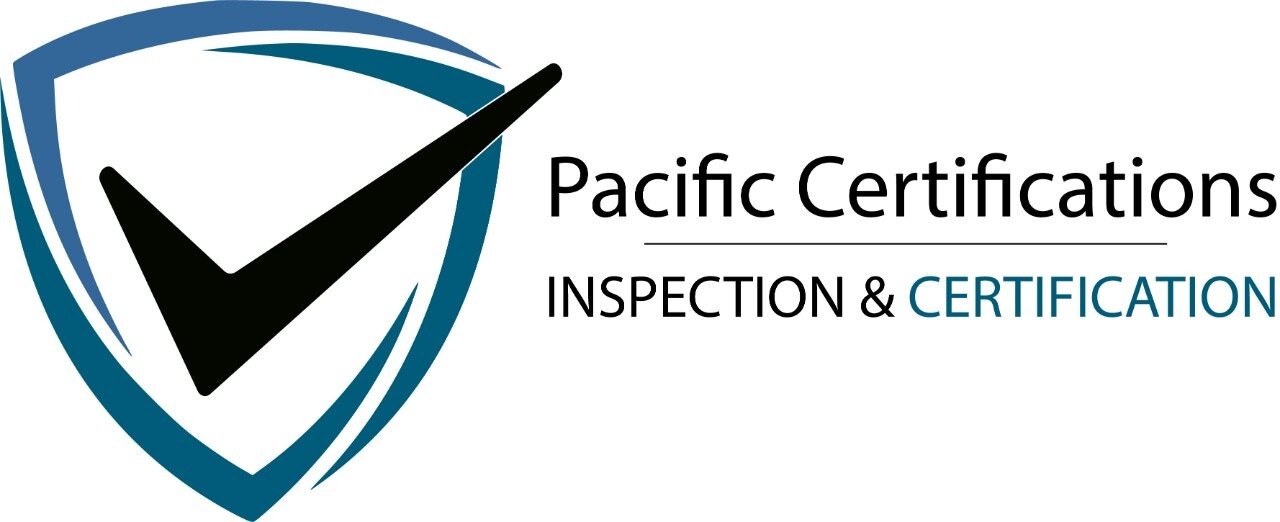ISO Certifications for Heavy Industry and Construction Industry, Requirements and Benefits

Introduction
Heavy industry and non- building construction operate in a high-risk, regulation-intensive, and capital-heavy environment where safety performance, quality control, environmental responsibility, and project reliability directly influence legal compliance, financial outcomes, and public trust. These industries cover activities such as infrastructure development, civil construction, steel and cement production, fabrication, power projects, mining support, large-scale equipment installation, and complex site-based operations involving multiple contractors and stakeholders.
With stricter regulatory oversight, rising safety expectations, sustainability requirements, and increasing scrutiny from investors, clients, and government authorities, heavy industry and construction companies are under continuous pressure to demonstrate disciplined management systems. Accidents, quality failures, environmental incidents, or project delays can lead to severe financial penalties and reputational damage. ISO certifications provide a structured and internationally accepted framework to standardize operations, manage risks, ensure worker safety, and strengthen credibility across large and complex projects.
In heavy industry and construction, trust is built on safety, control, and consistency.
Quick Summary
ISO certifications provide heavy industry and construction companies with internationally recognized frameworks to manage quality through ISO 9001, ensure occupational health and safety through ISO 45001, manage environmental impact through ISO 14001, strengthen information and document security through ISO/IEC 27001, ensure business and project continuity through ISO 22301, and establish structured risk governance through ISO 31000. These standards support safer worksites, compliant operations, and reliable project delivery.
For guidance on selecting the most relevant ISO standards for your heavy industry or construction operations, contact [email protected].
Applicable ISO Standards for Heavy Industry and Construction Industry
Below are the standards applicable to heavy industry and construction industry:
ISO 9001:2015 – Quality Management Systems
ISO 9001 helps heavy industry and construction companies standardize project planning, procurement, material inspection, execution, supervision, quality inspections, and defect management. It improves consistency across sites, reduces rework, and ensures that construction and industrial outputs meet contractual, technical, and regulatory requirements.
ISO 45001:2018 – Occupational Health & Safety Management Systems
Heavy industry and construction involve high-risk activities such as working at heights, heavy lifting, confined spaces, hot work, and operation of large machinery. ISO 45001 provides a systematic approach to hazard identification, risk assessment, legal compliance, and worker participation, significantly reducing accidents and unsafe practices.
ISO 14001:2015 – Environmental Management Systems
ISO 14001 supports organizations in managing environmental aspects such as dust, noise, emissions, waste disposal, water usage, and handling of hazardous materials. It helps construction and industrial companies meet environmental regulations and sustainability requirements increasingly demanded by governments and project owners.
ISO/IEC 27001:2022 – Information Security Management Systems
Large projects generate and handle sensitive information such as engineering drawings, BOQs, contracts, schedules, financial data, and client communications. ISO/IEC 27001 ensures that project and business information is protected from unauthorized access, loss, or misuse, particularly in digital and multi-site environments.
ISO 22301:2019 – Business Continuity Management Systems
Construction and industrial operations are vulnerable to disruptions such as supply-chain delays, labor shortages, equipment failure, natural disasters, or political instability. ISO 22301 ensures that organizations can maintain critical operations and recover quickly from disruptions, protecting project timelines and contractual commitments.
ISO 31000:2018 – Risk Management
ISO 31000 enables heavy industry and construction companies to systematically identify, assess, and manage risks related to safety, quality, environmental impact, finance, contracts, and operations. It supports better decision-making across complex, multi-project environments.
Click here to find out more applicable standards to your industry
What are the Requirements of ISO Certifications for Heavy Industry and Construction Industry?
Heavy industry and construction organizations seeking ISO certification must establish documented management systems and demonstrate consistent implementation across sites and projects. Key requirements include the following:
ISO 9001:2015 – Quality Management Systems Requirements
Document project planning, execution, inspection, and handover procedures
Define quality objectives aligned with project specifications and client requirements
Control drawings, method statements, inspection records, and test reports
Monitor non-conformities, defects, and rework
Implement corrective actions and continual improvement
Conduct internal audits and management reviews
ISO 45001:2018 – Occupational Health & Safety Requirements
Identify site-specific and activity-based hazards
Assess OH&S risks and implement control measures
Ensure compliance with safety laws, permits, and regulations
Provide safety training, toolbox talks, and PPE
Establish incident reporting and emergency response procedures
Monitor safety performance and continual improvement
ISO 14001:2015 – Environmental Management Requirements
Identify environmental aspects and impacts of operations
Control waste management, emissions, noise, and resource usage
Ensure compliance with environmental laws and permits
Implement environmental objectives and monitoring programs
Manage hazardous substances responsibly
ISO/IEC 27001:2022 – Information Security Requirements
Identify and classify project and business information assets
Conduct information security risk assessments
Implement access controls and document protection measures
Secure digital drawings, systems, and shared platforms
Control third-party access to sensitive information
Monitor and improve ISMS effectiveness
ISO 22301:2019 – Business Continuity Requirements
Identify critical operations and project dependencies
Conduct business impact analysis (BIA)
Develop continuity and recovery strategies
Plan for supply-chain and workforce disruptions
Test and review continuity arrangements
Tip:Map one complete project lifecycle—from tendering and design to construction, commissioning, and handover—against ISO requirements to identify quality, safety, and continuity gaps early.
For assistance in evaluating your heavy industry or construction operations against ISO requirements, contact [email protected].
What are the Benefits of ISO Certifications for Heavy Industry and Construction Industry?
ISO certifications provide heavy industry and construction companies with significant operational and commercial advantages, including:
Improved site safety and reduction in workplace accidents
Consistent construction quality and reduced rework
Stronger compliance with safety, environmental, and legal requirements
Better control over project documentation and records
Reduced operational, contractual, and financial risks
Improved project planning and execution efficiency
Increased confidence from clients, investors, and regulators
Improved eligibility for government and large infrastructure tenders
Enhanced environmental responsibility and sustainability performance
Long-term business credibility and resilience
Global investment in infrastructure, energy, and industrial development continues to rise, driven by urbanization, renewable energy projects, and large-scale public infrastructure programs. The global construction market is expected to exceed USD 15 trillion by 2030, with heavy industry playing a critical role in supporting energy, transportation, and manufacturing sectors.
At the same time, regulators, financiers, and project owners are placing stronger emphasis on safety performance, environmental compliance, and documented governance systems. Companies with ISO-aligned management systems are better positioned to win large contracts, manage complex risks, and operate sustainably.
How Pacific Certifications Can Help?
Pacific Certifications, accredited by ABIS, acts as an independent certification body for heavy industry and construction organizations by conducting impartial audits against applicable ISO standards. Our role is to objectively assess whether documented management systems and on-site operations conform to international ISO requirements, based strictly on verifiable evidence and records.
We support heavy industry and construction companies through:
Independent certification audits conducted in accordance with ISO/IEC 17021
Objective assessment of quality, safety, environmental, and risk controls
Clear audit reporting reflecting conformity status and certification decisions
Internationally recognized ISO certification upon successful compliance
Surveillance and recertification audits to maintain certification validity
Contact Us
For ISO certification for heavy industry and construction, contact [email protected] or call +91-8595603096.
Author: Ashish
Read More at: Blogs by Pacific Certifications

